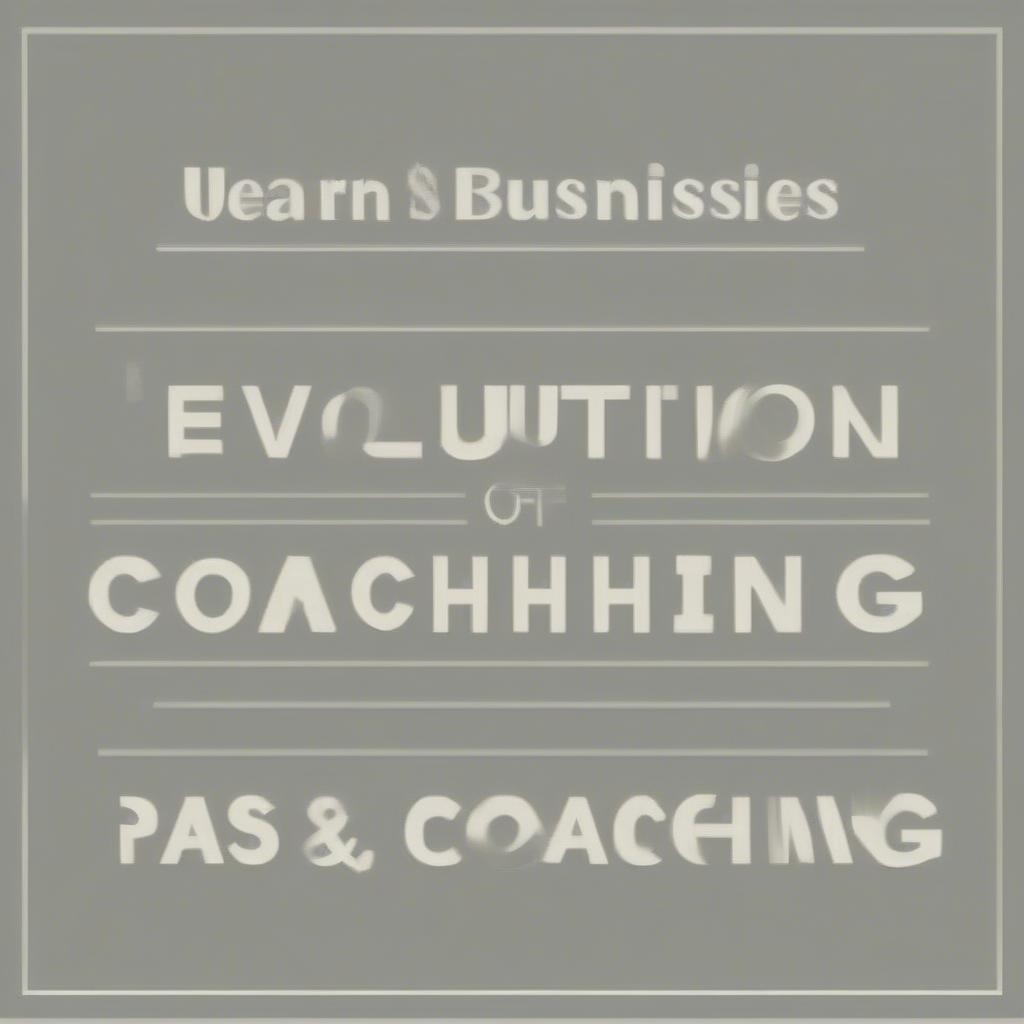
The Undeniable Power of Listening in Coaching
Imagine a world where you truly hear what someone is saying, not just the words, but the emotions, the unspoken fears, and the aspirations hidden beneath the surface. This is the power of strong listening skills, and it’s the cornerstone of effective coaching. As coaches, we’re not there to preach, advise, or fix; we’re there to facilitate growth, and that starts with deeply understanding our clients.
Why Listening Isn’t Just About Hearing
Many believe that listening is a passive act, simply letting sound waves enter your ears. That’s hearing, not listening. True listening is active and intentional. It involves:
- Paying Full Attention: Tuning out distractions and focusing solely on the speaker.
- Understanding Content: Grasping the explicit message being conveyed.
- Recognizing Emotions: Identifying the feelings underlying the words.
- Interpreting Subtext: Reading between the lines to uncover unspoken thoughts and beliefs.
- Remembering Key Points: Retaining important information for later reflection and follow-up.
Without this comprehensive approach, we miss crucial nuances and risk misinterpreting our client’s needs and motivations.
The Cost of Poor Listening in Coaching
Failing to develop strong listening skills has significant repercussions in the coaching relationship. It can lead to:
- Misunderstandings: Erroneous assumptions about client goals and challenges.
- Missed Opportunities: Failing to identify areas for growth and potential breakthroughs.
- Erosion of Trust: Clients feel unheard, disrespected, and ultimately, disconnected.
- Ineffective Coaching: Sessions become unproductive and fail to drive meaningful change.
- Client Dissatisfaction: Clients are unlikely to return or refer others.
Ultimately, poor listening undermines the entire coaching process and prevents the client from reaching their full potential.
Levels of Listening: Moving Beyond the Surface
Before we delve into strategies, let’s understand the different levels of listening:
Level 1: Internal Listening
At this level, your focus is primarily on yourself. You’re thinking about what you’re going to say next, judging the speaker, or letting your mind wander. This is the most basic and least effective form of listening.
- Example: The client is describing a challenge, and you’re thinking about your own similar experience, itching to share your story instead of being present.
Level 2: Focused Listening
Here, you’re paying attention to the speaker’s words, but you’re still somewhat detached. You might be focusing on the facts and figures without fully connecting with the speaker’s emotions.
- Example: You hear the client say, “I’m feeling overwhelmed,” and you respond with, “Okay, so let’s break down the tasks,” without acknowledging the feeling itself.
Level 3: Global Listening
This is where true coaching magic happens. At this level, you’re listening with your whole being – your ears, your eyes, your intuition. You’re fully present, connecting with the client on an emotional level, and noticing both verbal and nonverbal cues. This is the most powerful form of listening for coaches.
- Example: You hear the client say, “I’m feeling overwhelmed,” and you respond with, “I can hear that this feels really overwhelming for you. Can you tell me more about what’s causing that feeling?”
The goal is to consistently operate at Level 3: Global Listening.
Practical Strategies to Enhance Your Listening Skills
Now, let’s delve into actionable strategies that can transform your listening abilities:
1. Cultivate Presence
Being fully present is the cornerstone of effective listening. This involves:
- Eliminate Distractions: Put your phone away, close unnecessary tabs on your computer, and find a quiet space.
- Practice Mindfulness: Before each session, take a few deep breaths and center yourself. Focus on the present moment, letting go of any personal concerns or distractions.
- Make Eye Contact: Maintain a comfortable and non-intrusive level of eye contact to demonstrate that you are engaged and attentive.
2. Use Active Listening Techniques
Active listening is about actively engaging with the speaker, not just passively hearing their words. Key techniques include:
- Paraphrasing: Summarize what the client has said in your own words. This confirms your understanding and allows the client to clarify if needed.
- Example: “So, if I understand correctly, you’re saying that you feel stuck because you’re unsure of the next steps, is that right?”
- Reflecting: Mirror back the client’s emotions and feelings. This shows empathy and validates their experience.
- Example: “It sounds like you’re feeling really frustrated by this situation.”
- Clarifying: Ask open-ended questions to ensure you’re understanding the client’s perspective.
- Example: “Can you tell me more about what you mean by ‘stuck’?”
- Summarizing: At key points in the conversation, provide a concise recap of what has been discussed.
- Example: “Before we move on, let’s just recap what we’ve covered so far. We talked about X, Y, and Z, and it seems like this is all connected to this core issue.”
3. Pay Attention to Nonverbal Cues
Communication goes far beyond words. Pay close attention to:
- Body Language: Observe posture, gestures, and facial expressions. A client who’s slumped or avoiding eye contact might be feeling discouraged.
- Tone of Voice: Notice changes in pitch, volume, and pace. A hesitant tone might indicate uncertainty, while a rushed tone might suggest anxiety.
- Silence: Be comfortable with silence. It provides time for reflection and allows the client to gather their thoughts. Rushing to fill silence can often interrupt deeper thinking.
4. Practice Empathy
Empathy is the ability to understand and share the feelings of another person. As coaches, we need to:
- Put Yourself in Their Shoes: Try to imagine what it’s like to experience their situation.
- Validate Their Feelings: Avoid dismissing or minimizing their emotions. Instead, acknowledge and accept their perspective.
- Example: “That sounds incredibly challenging. It makes sense that you would feel that way.”
- Avoid Judgement: Approach each client with an open heart and mind, without preconceived notions or biases.
5. Ask Powerful Questions
The right question at the right time can unlock profound insights. Use questions to:
- Deepen Understanding: Move beyond surface-level information to explore the client’s underlying thoughts and beliefs.
- Example: “What does success look like for you in this situation? And why is that important to you?”
- Promote Self-Discovery: Encourage clients to explore their own answers and solutions.
- Example: “What are some resources you could tap into to overcome this hurdle?”
- Challenge Limiting Beliefs: Help clients identify and overcome self-defeating thoughts and patterns.
- Example: “What would you do differently if you knew you couldn’t fail?”
6. Learn to Resist the Urge to Interrupt
Interrupting often comes from a place of wanting to help or share your perspective. But it can derail the client’s train of thought and make them feel unheard. Practice:
- Active Patience: Allow the client to fully express their thoughts before responding.
- Non-Verbal Encouragement: Use nods, smiles, and other subtle cues to show that you are listening and engaged.
- Delay Your Response: Pause briefly before responding to give the client space and allow for deeper reflection.
7. Take Notes Effectively
Taking notes during a session is essential for tracking progress and recalling key points, but it must be done in a way that doesn’t interrupt the flow of the conversation:
- Key Words and Phrases: Instead of writing everything down verbatim, focus on capturing the essence of what’s being said.
- Nonverbal Observations: Note any shifts in body language, tone, or facial expressions that could be relevant.
- Review and Reflect: After each session, take time to review your notes and identify key themes or patterns.
8. Seek Feedback
Continuously seek feedback from your clients and peers about your listening skills. This will help you identify areas for growth and improve your coaching effectiveness.
- Ask for Specific Feedback: Instead of asking, “How am I doing?” ask more specific questions like, “Did you feel heard and understood during our session?”
- Be Open to Constructive Criticism: View feedback as an opportunity to learn and grow, rather than as a personal attack.
- Reflect and Adjust: Use the feedback to make adjustments to your listening approach.
9. Continuously Practice and Self-Reflect
Developing strong listening skills is an ongoing journey. It requires constant practice, self-reflection, and a commitment to improvement.
- Record Your Coaching Sessions: Listen back to your sessions and evaluate your listening techniques. Identify areas where you could have listened more deeply or asked more powerful questions.
- Journal Your Reflections: Write down your observations and insights about your listening habits.
- Practice in Everyday Conversations: Consciously apply these techniques in your everyday interactions. This will strengthen your listening muscle and make it more natural.
Templates and Tools to Support Active Listening
To make these strategies more actionable, here are a few templates and tools you can use:
The Active Listening Checklist
Use this checklist before, during, and after each coaching session to ensure you are using effective listening techniques:
- Before Session:
- [ ] Eliminated distractions
- [ ] Practiced mindfulness
- [ ] Set an intention to be fully present
- During Session:
- [ ] Maintained eye contact
- [ ] Paraphrased key points
- [ ] Reflected emotions and feelings
- [ ] Asked clarifying questions
- [ ] Summarized key topics
- [ ] Paid attention to nonverbal cues
- [ ] Avoided interrupting
- [ ] Taken effective notes
- After Session:
- [ ] Reviewed notes and identified key themes
- [ ] Reflected on listening effectiveness
- [ ] Identified areas for improvement
The Powerful Question Starter Template
Use these question starters to guide your questioning:
- About their situation: “What does this situation mean to you?”, “What is your ideal outcome?”
- About their feelings: “How do you feel about that?”, “What is the emotion you are experiencing?”
- About their beliefs: “What do you believe about this?”, “What is the limiting belief holding you back?”
- About possibilities: “What are some options you haven’t considered?”, “What if anything was possible?”
The Post-Session Reflection Guide
Use this guide to self-reflect and improve your listening skills:
- What did I do well in this session in terms of my listening skills?
- Where could I have listened more effectively?
- What key insights did I gain about the client?
- What powerful questions could I have asked?
- What specific listening strategies will I focus on in my next session?
Learn Business: Your Partner in Developing Strong Coaching Skills
At Learn Business, we understand that strong listening skills are critical for effective coaching and business success. We provide the guidance and resources needed to develop these essential skills and build stronger coaching relationships. Our services include:
- Tailored Coaching Programs: Learn Business offers coaching programs designed to hone your listening and coaching abilities. These programs are focused on practical skills application and real-world scenarios.
- Comprehensive Templates: Access templates like the ones described above, along with many more. These resources are designed to simplify the process of active listening and improve your coaching practices.
- Business Support: We provide strategic support, training, and development services to help businesses thrive. Our business support includes business strategy, marketing strategy, sales support, leadership and team management, operations, finance, and people and culture.
- Personalized Advice: Our experts provide personalized support and feedback to ensure you are constantly improving and achieving your goals.
We believe that business success is built on strong relationships. Learn Business empowers you to build those relationships by focusing on your personal and professional growth as a coach and leader. We don’t just offer templates, we offer a partnership in your journey to coaching mastery.
The Ongoing Journey of Listening
Developing strong listening skills is an ongoing process. It’s a commitment to being fully present, truly hearing, and deeply understanding those you serve. As a coach, your ability to listen effectively is your most powerful tool for creating impactful change. By continuously honing your skills, you empower your clients to achieve their fullest potential. Start implementing these strategies, embrace the process, and watch how your coaching practice transforms. Your clients – and your business – will thank you.



Leave a Reply